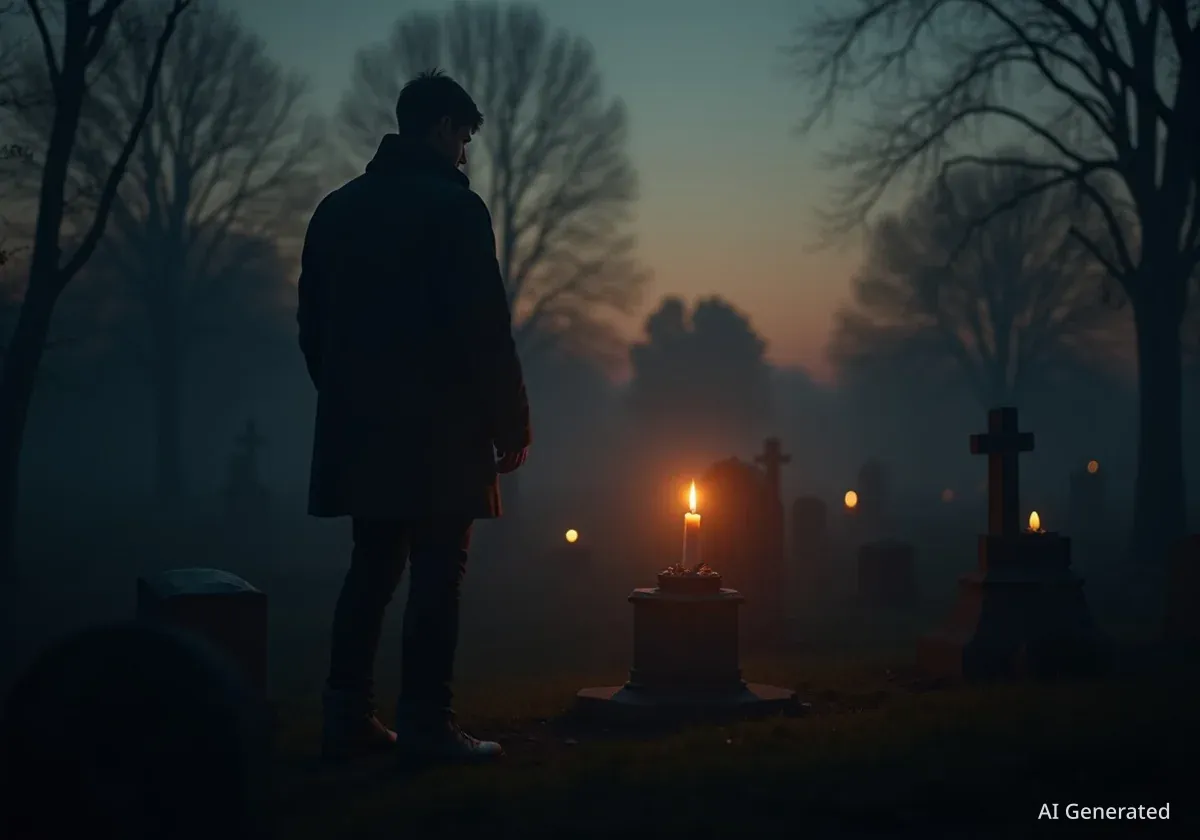Every year, on November 2nd, many observe All Souls' Day, a time dedicated to remembering and praying for those who have died. This day offers a unique perspective on life, death, and the spiritual journey beyond our earthly existence. It is a moment for reflection and connection with the departed.
Key Takeaways
- All Souls' Day is observed annually on November 2nd.
- The practice of praying for the dead has ancient roots, predating Christianity.
- It emphasizes a spiritual cleansing process after death.
- The day serves as a reminder of our own mortality and the importance of preparation.
The Historical Roots of Prayer for the Departed
The tradition of praying for the dead is not a modern development. Historical records and ancient texts show that this practice existed long before the Christian era. For example, in Jewish tradition, as found in the Second Book of Maccabees, there are accounts of prayers and sacrifices offered for the deceased, indicating a belief in a spiritual benefit for them.
This ancient custom highlights a deeply ingrained human need to honor and support those who have passed on. It suggests an understanding that the bond between the living and the dead continues in some form, even after physical separation.
Ancient Practice
The Book of Wisdom, an Old Testament text, speaks of the righteous being "chastised a little" and then "greatly blessed," refined "as gold in the furnace." This imagery suggests a process of purification or cleansing.
Understanding Spiritual Cleansing
A central concept linked to All Souls' Day is spiritual cleansing. Many traditions believe that after death, individuals may undergo a period of purification before entering a final state of eternal peace. This idea is not about a "second chance" for salvation, but rather a completion of the spiritual journey.
The purpose of this cleansing is to remove any remaining imperfections or attachments from earthly life. It prepares the soul for a full and complete union with the divine. This process is often seen as an act of divine mercy, allowing souls to reach their ultimate destination.
"We were indeed buried with him through baptism into death, so that, just as Christ was raised from the dead by the glory of the Father, we too might live in newness of life."
Early Christian Perspectives
Early Christian leaders also supported the idea of praying for the dead. Saint Augustine, a significant figure in early Christian thought, wrote about the importance of such prayers. He noted that the Church consistently observed the practice of remembering the deceased during religious services, including the Mass.
According to Saint Augustine, the prayers of the Church, along with the offering of Mass and acts of charity, provided spiritual assistance to those who had died in communion with the faith. This practice was seen as a way for the living to continue supporting their departed loved ones on their spiritual path.
The Role of the Church
The Church's prayers, the celebration of Mass, and charitable acts are historically recognized as ways to offer spiritual aid to the dead. This collective effort underscores the belief in the ongoing communion between the living and the departed.
Facing Mortality in Modern Times
In contemporary society, there is often a reluctance to confront death directly. Modern culture frequently attempts to avoid or minimize discussions about mortality. This avoidance can lead to a lack of preparation for an inevitable part of life.
However, All Souls' Day encourages a different approach. It provides a structured time to acknowledge death not as an end, but as a transition. This perspective can help individuals process grief and understand the broader context of existence.
- Death is a natural part of life.
- Preparation for death can bring peace.
- Spiritual traditions offer comfort and guidance.
The Promise of Eternal Life
A core message associated with All Souls' Day is the promise of eternal life. Many spiritual teachings offer hope that death is not the final chapter. Instead, it is seen as a gateway to a new form of existence.
The Gospel of John, for instance, speaks of a promise from Jesus Christ: "everyone who sees the Son and believes in him may have eternal life, and I shall raise him on the last day." This provides a foundation of hope for those who grieve and for those contemplating their own mortality.
This promise transforms the perception of death from a feared end to a hopeful transition. It encourages individuals to live a life that prepares them for this ultimate journey, trusting in divine guidance.
Preparing for the Inevitable
All Souls' Day serves as a potent reminder of our own mortality. While death is an unavoidable aspect of life, how we prepare for it can significantly impact our peace of mind and the comfort of those we leave behind. This preparation is not just about practical arrangements; it also involves spiritual readiness.
By reflecting on the meaning of All Souls' Day, individuals can cultivate a deeper trust in their spiritual beliefs. This trust can provide solace and strength when facing the mystery of death, allowing them to navigate the "valley of darkness" with faith and hope.
Personal Reflection
The observance of All Souls' Day encourages personal reflection on one's life, spiritual journey, and the ultimate destination beyond death. It is a call to prepare for what lies ahead.




